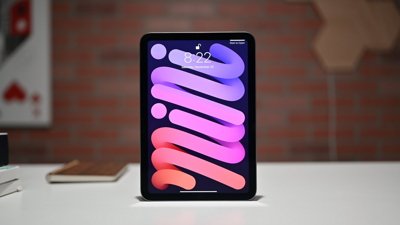Apple's AirPods line is the go-to personal audio accessory range for iPhone owners. Here's what to know about each model in the range, and which is the best buy for your budget.
Initially announced in September 2016 and released in December 2016, AirPods quickly became a must-have wireless audio product of a generation. With signature white casings and dangling stalks, they were an instant hit and turned into a status symbol among its users.
Since that launch, Apple has expanded the range with multiple options, and after six launches, it now has a range of four, covering three different model ranges: AirPods, AirPods Pro, and AirPods Max.
Here, we will cover what you can expect from each model, and guide you on which you should consider depending on how much you want to spend.
Specifications
| Specifications | AirPods (Gen 2) | AirPods (Gen 3) | AirPods Pro (Gen 2) | AirPods Max |
|---|---|---|---|---|
| Price | $129 Check prices | From $169 Check prices | $249.00 Check prices | $549 Check prices |
| Dimensions (inches) | 1.59 x 0.65 x 0.71 | 1.21 x 0.72 x 0.76 | 1.22 x 0.86 x 0.94 | 6.64 x 7.37 x 3.28 |
| Weight (ounces) | 0.14 | 0.15 | 0.19 | 13.6 |
| Case | Lightning Charging Case | Lightning Charging Case | MagSafe Charging Case | Smart Case |
| Case Dimensions (inches) | 2.11 x 1.74 x 0.84 | 1.83 x 2.14 x 0.84 | 1.78 x 2.39 x 0.85 | 9.25 x 8.27 x 2.48 |
| Case Weight (ounces) | 1.35 | 1.34 | 1.79 | 4.74 |
| Battery Life (AirPods alone) | 5 hours | 6 hours, 5 with Spatial Audio on | 6 hours with ANC, Up to 5.5 hours with Spatial Audio and Head Tracking on | 20 hours with ANC |
| Battery Life (with case) | More than 24 hours | Up to 30 hours | Up to 30 hours | 20 hours with ANC |
| Connectivity | Bluetooth 5.0 | Bluetooth 5.0 | Bluetooth 5.3, Ultra Wideband | Bluetooth 5.0 |
| Control | Double Tap | Force Sensor | Touch Control | Digital Crown, Noise control button |
| Microphones | Dual beamforming microphones, | Dual beamforming microphones, Inward-facing microphone | Dual beamforming microphones, Inward-facing microphone | Nine microphones, Eight for ANC, Three for voice pickup |
| Sensors | Dual optical sensors, Motion-detecting accelerometer, Speech-detecting accelerometer, Double-tap | Skin-detect sensor, Motion-detecting accelerometer, Speech-detecting accelerometer, Force sensor | Skin-detect sensor, Motion-detecting accelerometer, Speech-detecting accelerometer, Touch control | Optical sensor, Position sensor, Case-detect sensor, Accelerometer, Gyroscope |
| Sweat and Water Resistance | None | IPX4 | IPX4 | None |
| Adaptive EQ | No | Yes | Yes | Yes |
| Active Noise Cancellation | No | No | Yes | Yes |
| Spatial Audio | No | Yes | Yes | Yes |
What are the main differences?
As mentioned, there are three different distinct models of AirPods that Apple sells. Each has its key benefits.
AirPods are considered the entry-level option, providing you with wireless audio listening in a compact and stylish in-ear earbud. Apple currently sells second-generation and third-generation models, and there are small differences between the two.
The AirPods Pro, as the name suggests, takes the basic form of the AirPods but adds in premium features. Chiefly, this is the inclusion of active noise-cancelation (ANC), which helps block out environmental noise so you hear your podcast or music more clearly, and with fewer interruptions.
The AirPods Max are a big departure in that they are over-ear headphones. A decidedly premium offering, the AirPods Max provide the same ANC features as the AirPods Pro but with all-encompassing earcups that help to block out more of the outside world.
AirPods Gen 2
The value end of the entire AirPods spectrum, the standard AirPods provide the bulk of the main features the product line offers. This makes for a good choice for the price-conscious user.
Supplied in a white charging case, each AirPod is designed to automatically turn on and connect to your Apple devices. Once they're paired with your iPhone, for example, you can then switch to hear audio from an iPad that you're already signed into, or an Apple TV, or a Mac.
Along with playing back audio, you can control the AirPods in a few ways. The hands-free option is to use Siri, who can perform actions and read notifications, without needing to reach for your iPhone.
If you want more direct control, you can double-tap each earbud to navigate a playlist or answer calls.
You can get a good 5 hours of listening time from a single charge and up to 3 hours of talk time too. The Lightning Charging Case included with the AirPods can provide extra power by recharging the AirPods when they're re-seated in the case.
With the Lightning Charging Case, your total listening time can be pushed beyond 24 hours, with AirPods gaining up to 3 hours of listening time from a 15-minute charge.
The second-generation AirPods, complete with the Lightning Charging Case, costs $129 (check discounts).
While not available as a bundled item, you can also buy the Wireless Charging Case for AirPods for $79. Functioning just like the Lightning Charging Case, the wireless version also adds in wireless charging via a Qi-certified charging point, as well as Lightning.
You can also get AppleCare+ with the purchase, which provides two years of unlimited repairs for accidental damage and additional tech support, for $29.
AirPods Gen 3
On the face of it, the third-generation AirPods are very close to the second-generation version. They're a little shorter and squatter, but ultimately pretty close in concept and design.
Most of the features are also the same, but there are some differences to consider.
For a start, there's a feature called Spatial Audio with dynamic head tracking, which treats the song as if it's produced in 3D space. The idea is to make it feel like instruments and singing come from different directions as if you're watching a live performance.
While a cool feature, it does eat into the AirPods battery life, which has been improved for the third generation. With 6 hours of listening and 5 hours with Spatial Audio enabled, you get more time with your music in the newest generation.
The battery improvements also follow with the Lightning Charging Case, which helps push total playback time to 30 hours at most. For this version, you could switch the Lightning Charging Case for the MagSafe Charging Case, which works with wireless chargers and MagSafe, for an extra fee at the time of purchasing.
The audio also benefits from Apple adding a custom high-excursion driver and high dynamic range amplifier. There's also an Adaptive EQ, which can fine-tune audio playback to better suit your ears.
Apple also includes more control options for the third-gen models, with multiple presses and a press-and-hold action available this time around, thanks to the use of a force sensor.
There's also IPX4 sweat and water resistance, so you could use AirPods in workouts without worrying too much about damaging them.
Apple sells the third-generation AirPods for $169 with the Lightning Charging Case, $179 with the MagSafe Charging Case. We recommend going for the MagSafe version, especially if you're using MagSafe with your iPhone, as it gives you more charging options.
AppleCare+ for Headphones is available as a $29 add-on.
AirPods Pro Gen 2
The Pro model of AirPods look a bit different from the standard model, and for a few good reasons Externally, each earbud is shorter and squatter than the Gen 2 AirPods, but they're a little wider than the third-gen AirPods.
Part of this size change is due to an additional element: silicone ear tips. These are designed to give you a snug fit in the ear canal, keeping each AirPods Pro earbud firmly in place.
The ear tips also play a major role in a big feature upgrade in the form of Active Noise Cancelation. ANC uses microphones and onboard processing to filter out external audio sources from reaching the eardrum, cutting down the world's background drone and distractions in favor of a better listening experience.
To go with ANC, Apple also introduced Transparency, a mode that still blocked out most of the main background noise, but still allows you to hear important things, like a person's voice or a warning beep.
The second-generation version does ANC better than the first, while also tweaking Transparency. A new Adaptive Transparency powered by the H2 chip can minimize the intensity of sudden loud noises, such as power tools and sirens.
The H2 processing also plays a part in processing sound, tuning the audio to the user's specific ear shape for an optimal experience. A new custom driver and amplifier work with the chip to reduce distortion during playback, keeping the bass and high notes as clear as possible.
Personalized Spatial Audio with dynamic head tracking reappears here, along with the MagSafe Charging Case, which can boost listening time to 30 hours. Alone, the AirPods Pro manage 6 hours with ANC enabled and 5.5 hours with Spatial Audio with Head Tracking turned on.
The controls are pretty much the same as the third-gen AirPods for taps and holds, but you can also swipe up and down the stalk to adjust the volume.
New in this iteration is a change to Bluetooth 5.3 support, along with the case including a U1 chip. This latter addition enables Find My with Precision Finding, taking advantage of Ultra Wideband to enable iPhone owners to more easily find their AirPods Pro within a room.
The case and AirPods Pro are both IPX4 sweat and water-resistant. You also get a lanyard attachment point on the case for easier carrying around your neck or for attaching accessories.
Apple sells the second-generation AirPods Pro for $249, but discounts are available in our Price Comparison Guide.
AppleCare+ for Headphones is available for $29 more.
AirPods Max
A wild departure in the range, AirPods Max are not wireless earbuds but earphones. The earcup cushions envelop your ears, helping to insulate them from the outside world while remaining comfortable.
Using an Apple-designed driver, the AirPods Max offer all of the key features of the AirPods Pro, including ANC, Transparency, Adaptive EQ, and Personalized Spatial Audio with Dynamic Head Tracking, but in a more luxurious package.
Instead of stalks, you get a Digital Crown to control the AirPods Max, borrowed from the Apple Watch. Turning and pressing it handles various media functions and summons Siri, while a Noise Control button manages the ANC and Transparency modes.
Connecting over Bluetooth 5.0, the AirPods Max provide up to 20 hours of listening time from a single charge, with ANC enabled. This is much longer than the earbud versions can manage, but then again, there's more space for more battery here.
You recharge the AirPods Max using the Lightning port under one earcup. That Lightning port can also be used with an appropriate cable to connect to a 3.5mm headphone jack, so you can listen from local sources that don't have wireless connectivity if you wish.
While charging is done directly, there is a Smart Case supplied with the AirPods Max, protecting the personal audio earwear. When stored in the case, the AirPods Max shift to an ultra-low-power state, preserving charge until you need them next.
There's one more thing that AirPods Max offers that AirPods and AirPods Pro do not: Color. You have the choice of Space Gray, Pink, Green, Silver, and Sky Blue, instead of the usual white.
The AirPods Max cost $549, regardless of color, but discounts drive the models down to as low as $449.
You can get AppleCare+ for Headphones, which provides the same two years of repairs and tech support, but at a premium of $59.
Buying Advice
Like other areas of Apple's product ranges, AirPods covers a wide array of price points and feature options. But there are some things to consider.
For a start, if price is a big deciding factor, you're probably going to look at the AirPods. There's not a massive difference between the generations, so that extra $40 for the third-gen over the second for Spatial Audio may not be worth it.
However, if you were eyeing getting a case with wireless charging, it would be cheaper to go for the third-gen with the $10 extra charge for the MagSafe Charging Case for a total of $179 instead of getting the second-gen model and a Wireless Charging Case separately for a combined $208.
If you need ANC functionality, you have to pretty much ignore AirPods entirely and look towards AirPods Pro. ANC and Ultra Wideband is pretty worthwhile to pay an extra $70 for on top of the Gen 3 AirPods with MagSafe upgrade.
AirPods Max is in a league of its own, both in cost and utility. If you're an audiophile, you may be tempted by these, but most people will probably try to avoid the $549 fee.
AirPods Max or two second-gen AirPods Pro and $51 spare for accessories? There's no contest.
Also, it is highly recommended to pick up AppleCare+. For $29 (or $59), it's a two-year safety net for accessories that you will almost certainly misplace or damage at least once.
Where to buy AirPods
Apple's AirPods lineup is heavily discounted, with the savings at your fingertips in our AirPods Price Guide.
From exclusive savings to instant rebates across Apple resellers, the best AirPods deals offer up to $100 off in-ear and over-ear options.
 Malcolm Owen
Malcolm Owen


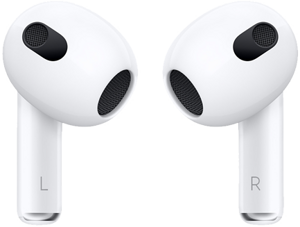

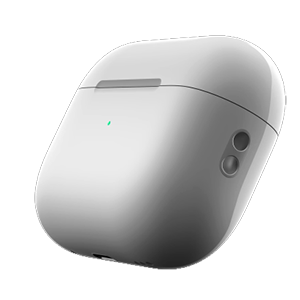
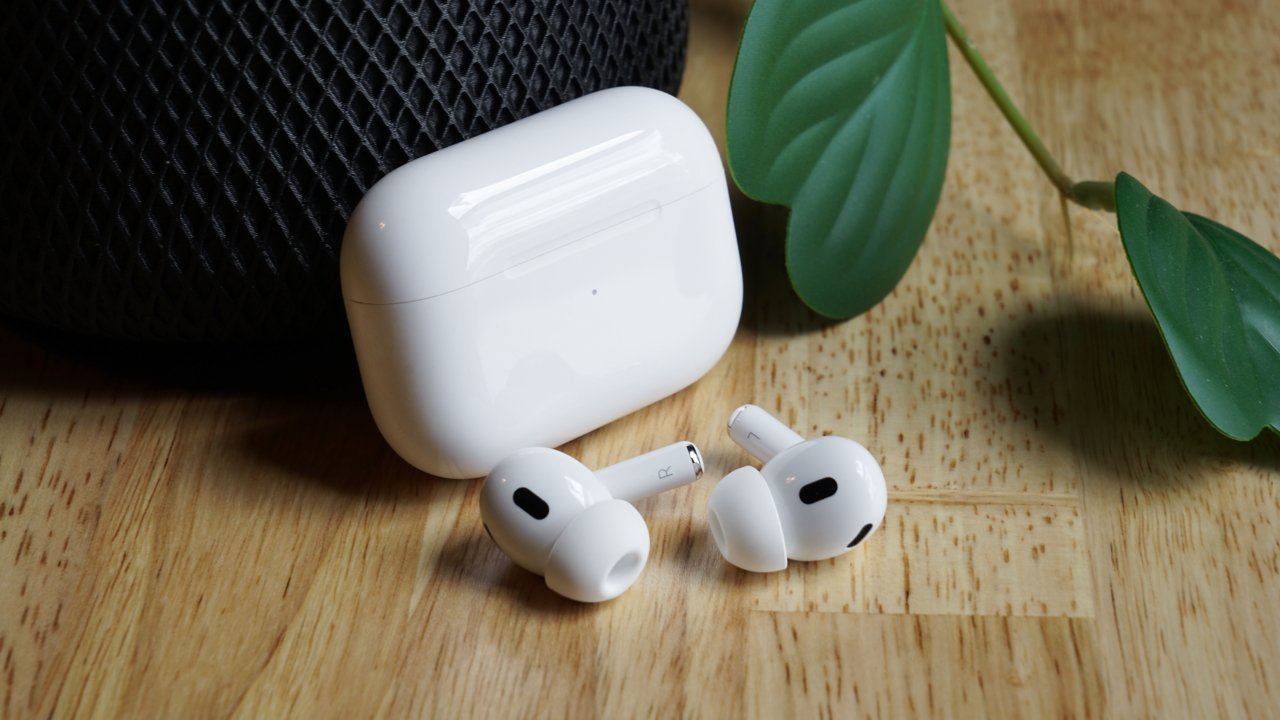
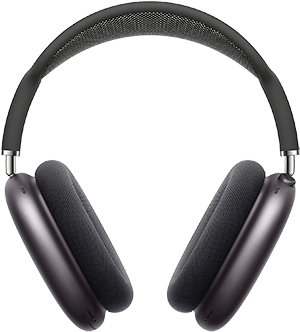
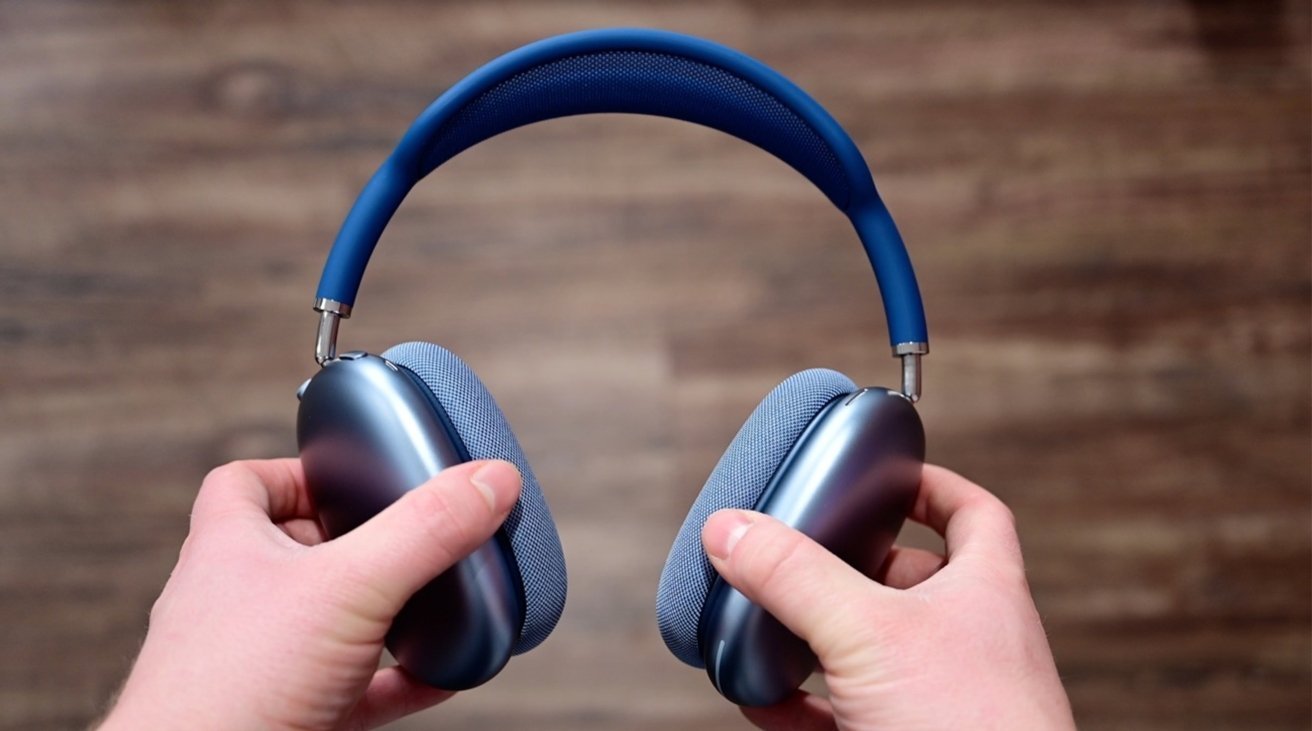
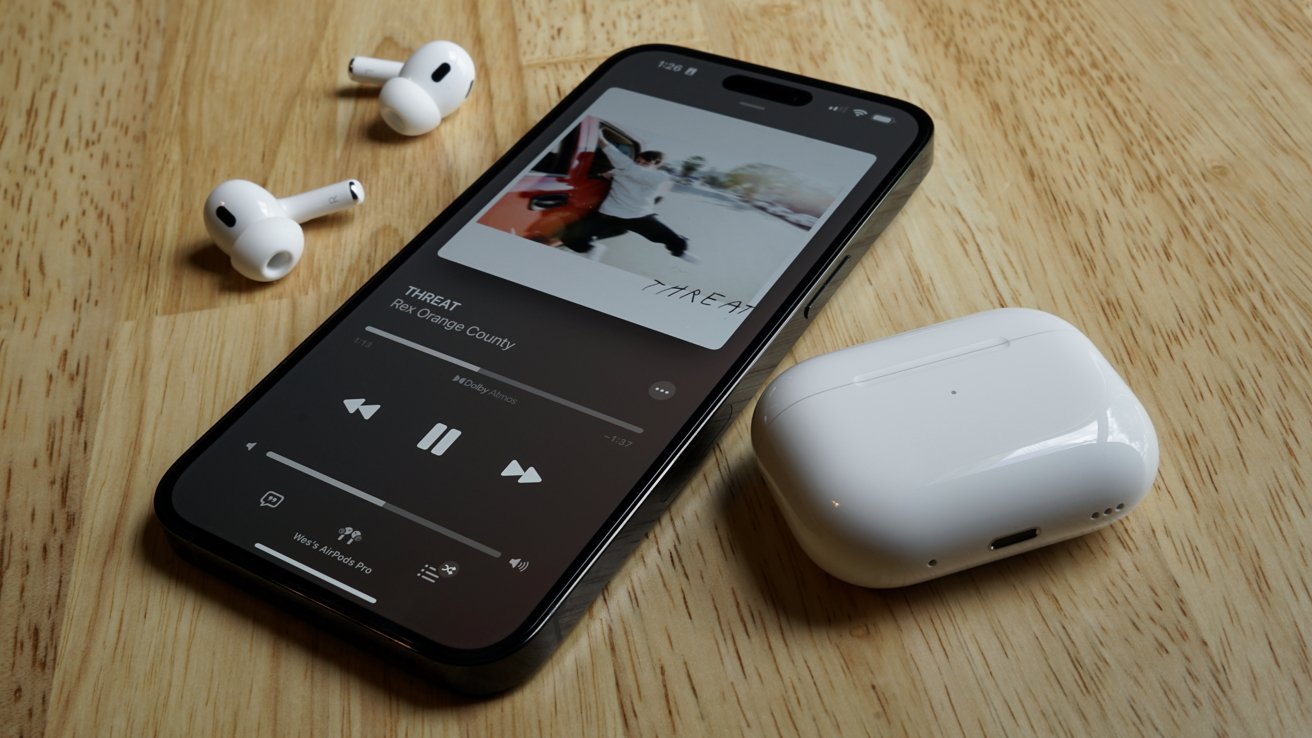








 Christine McKee
Christine McKee
 Amber Neely
Amber Neely
 Andrew Orr
Andrew Orr

 Sponsored Content
Sponsored Content

 William Gallagher
William Gallagher